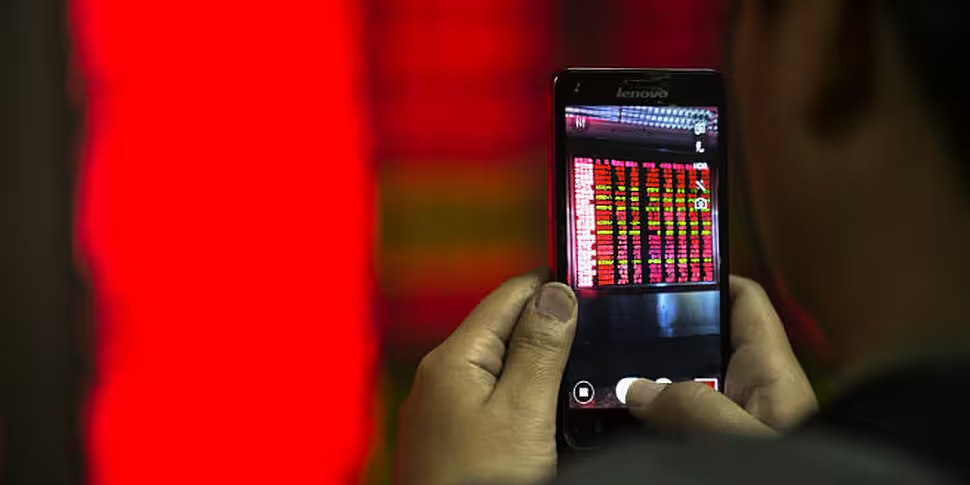The world's second-largest economy grew by 6.8% in the October-December quarter, down from the previous quarter's 6.9%.
That dragged full-year growth to a 25-year low of 6.9% which will lead to concern in markets around the world.
The country's stock market remains volatile, with the main index briefly falling below August's lows on Monday, and hundreds of billions of dollars wiped off the value of shares in the last month alone.
On the ground
As concerns deepen about the nation's economic health, we travelled to the southern industrial city of Dongguan in the country's manufacturing heartland to report on the human cost of China's economic slowdown.
Outside a factory in the region once known as the "workshop of the world" we found a family of migrant workers packing up and heading home, pushing a cart piled high with their belongings down the road.
"The factory has dismissed us," Mr Liu said, walking alongside his five-year-old son.
"They have terminated our contracts, so we need to look for new jobs."
The shoe factory they worked for is closing down, citing a tough business climate.
"It's obvious business is not as good as it used to be," said Mr Liu, who did not want to give his first name.
"In the past, our industrial zone had more than 10,000 people, now only a few thousand are left."
Across the city, one couple, Liang Zuosheng and Tang Yuxiu, showed us the small factory where they used to work making sweatshirts.
Both in their sixties, they lost their jobs in October when the company collapsed.
They said their boss disappeared overnight, taking their wages and money they had lent the company with him.
"For us, the factory has gone, so has our money," Mr Liang said.
Anxious not to be a burden to their children, they wanted to work while they still could, but now they have been left with nothing, and they do not know where else to turn.
"If you have some money, it's okay," Mr Liang told us.
"But people like us, who don’t have any money, may have to live on the streets.
"Business is really hard, people have little money in their pocket to buy. It's really difficult."
The streets outside are lined with clothing factories, but red signs posted at regular intervals say 'empty' and 'available for rent.'
You could argue that this is all part of the plan - that China is trying to transform its economy away from cheap exports towards high tech and domestic consumption.
But by no means is everyone convinced. Veteran economist Mao Yushi remembers the rule of Chairman Mao. In his 87 years he has witnessed China's economic rise, but now he has a stark warning for President Xi Jinping, and his ever-tightening political control.
"The source of the economic problem is a political problem," Mao Yushi explained.
"Mr Xi controls all, he takes all the power for himself - so there is no check and balance in the political system, and his wrong policy will go further and further.
"Finally, you will hit the wall - that is the big crisis."
He said he believes that crisis will come "in a few years, not a long time."
IRN









